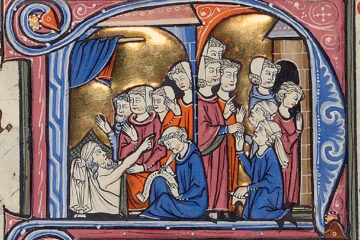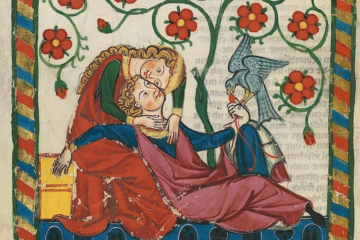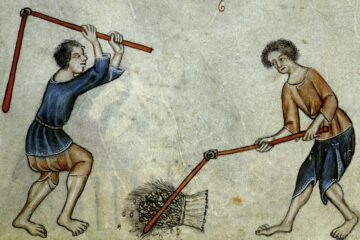The defining event which sent the Papal States into ruin were the Papal Wars which began in 1134. The Crisis goes back into the past when Pope Alexander I was chosen as the Bishop of Rome. His policies were centered around peace, mercy, and devotion. While he ruled, both Europe and the Papal States enjoyed a period of peace. With the passing of Pope Alexander I, came the rise of a Germanic Pope, Clement II, who was more focused on Church dominance within the many Christian realms of the time. As a rallying cry, he used the Schism of 1089 as clear proof that Alexander I was weak and ineffective. Rome became the center of Europe, which was clearly aligned towards the prosperity of the Holy Roman Empire, usually at the expense of its neighbors, namely the Frankish Sirius Empire.
The tensions between the two Empires came to a head when Pope Clement II was to crown Philip I Sirius as Emperor of the Sirius Empire. Upon his refusal war broke out between the two empires in order to answer the question of who the successor to Rome truly is. The Papal States completely supported the Holy Roman Empire until Pope Clement II’s death in 1133. There was a large disagreement on who was to inherit the throne of St. Peter. While the curia deliberated and elected Pope Alexander II, a Frankish Cardinal, the Imperial Diet of the Holy Roman Empire deliberated and chose Bishop Stephen of Bavaria to be the next Pope. As Rome was technically under the de facto rule of the Holy Roman Emperor, he marched his army south and attempted to arrest the curia. They managed to escape, but Rome was sacked in 1136. Following this action, the Papacy had split between a Frankish See and a German See, with two Popes legitimate at the same time.
The Knights Divine sided with the Franks, as the Grandmaster was actually revealed to be related to Pope Alexander II. Venice on the other hand supported the Germanic Pope. In retaliation, the other Kingdoms of Northern Italy chose apathy and decided to carve up the Papal States for their own benefit.
The Papal Wars occurred in parallel with the Fifty Years’ War which devastated Europe. It was mostly fought through the use of mercenaries, which further pushed for their wider use. The Swiss Cantonments and Free Cities within the Holy Roman Empire blossomed as a result and became a region of wealth and prosperity. Alongside them, many bands from Spain, Croatia, and Normandy took part in the fighting, trying to gain both coin and favor with the Papacy. There is no record on Pope Alexander II’s death, but the Frankish See remained under the Sirius Emperors until the war ended.
Being preoccupied with the war effort, the Sirius Emperors let the war in Italia run its course. Grandmaster Divine Baptiste de Baud, single-handedly ended the conflict in 1155 when he beat a large coalition army of Venetian and Croatian mercenaries, led by German commanders near San Marino.
The Papal States dissolved and only Rome remained in 1155. A larger reconquest could not be organized and Grandmaster Baptiste took command of the Holy City until 1156 when the Curia met to elect a new Pope, after the death of Pope Clement III of Bavaria. Pope Alexander III was chosen, formerly Bishop Philipe of Spain. He immediately got to work, trying to end the Fifty Years’ War. While he was on a visit to Rosewood, he was trapped by the German Armies in a siege in 1158.
I write from the Chambers of Pope Alexander I, within the Cathedral of Rosewood, named after St. Leena. Neither of my predecessors spent any time inside, so I see many papers and writing left over, perhaps a hundred years old. The winter is cold as the Lord has sent a miracle our way. I expect the Germans to retreat for sunnier times. This will give me enough room to return to Rome.
Rosewood is truly beautiful, even during times of war. I have seen countless refugees and simple folk from all across the country gather at the Capital, the safest place in Europe. They tell me that the walls have not once fallen to enemy hands. Their pride knows no bounds. I honestly hope it has not been misplaced. No wall can stand against the will of our Lord God. If He wills it, Rosewood shall fall. Rome itself has fallen many a time and yet, it remains. Powerful, prestigious, and pious.
Dated 1158, bearing the Papal Seal, sent to Rome, originally written in Latin.
The Papal Wars saw the decline of Papal supremacy in Italia and in Europe. Not long after, the Italian Kingdoms within the HRE seceded and declared independence. It marked the end of German dominance within the region. It also sowed the seeds of distrust between dioceses within France and the Holy See, sparking an Age of Heresy, especially within the southern regions.


